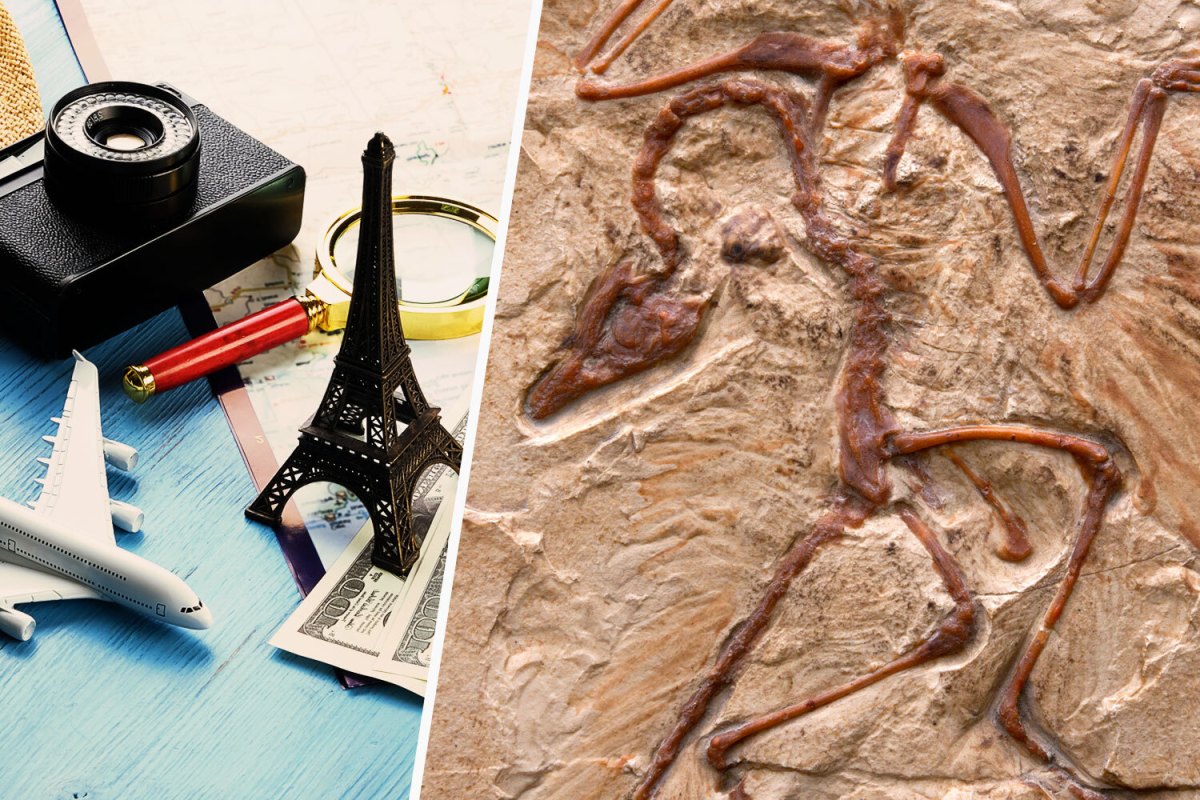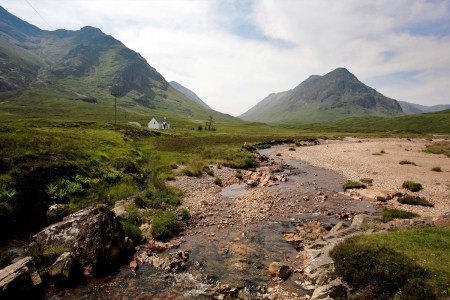Let’s be honest here: it’s hard not to be intrigued by the concept of prehistoric animals roaming the earth millions of years ago. What did they really look like? And how did they actually interact with each other? Dinosaurs and other Jurrasic-era animals will always be a mystery to mankind, but with new discoveries, fossils and expert-led research, we’ve managed to learn just enough about the ancient creatures to be captivated by their existence (and their extinction) for hundreds of years.
You don’t have to be a scientist or a paleontologist in order to get up close and personal with the breakthroughs and dinosaur-driven discoveries around the world, either. If you’re as captivated by prehistoric creatures as we are, you’ll want to start looking for flights. Dinosaurs roamed the entire globe and lived on every continent, which means that dozens of countries have discovered intriguing fossils and skeletons to study and put on permanent display for the public.
Some of us just don’t grow out of the dinosaur phase that captured us as kids, and these destinations cater to us. Below, we’ve rounded up some of the absolute best places to travel if you love dinosaurs. Note that these dinosaur travel destinations —although some child-friendly — aren’t just for kids. We’re talking paleontologist-led research digs, high-level research centers and walking tours that boast fossilized dinosaur footprints on landscapes shaped by Ice Age glaciers.
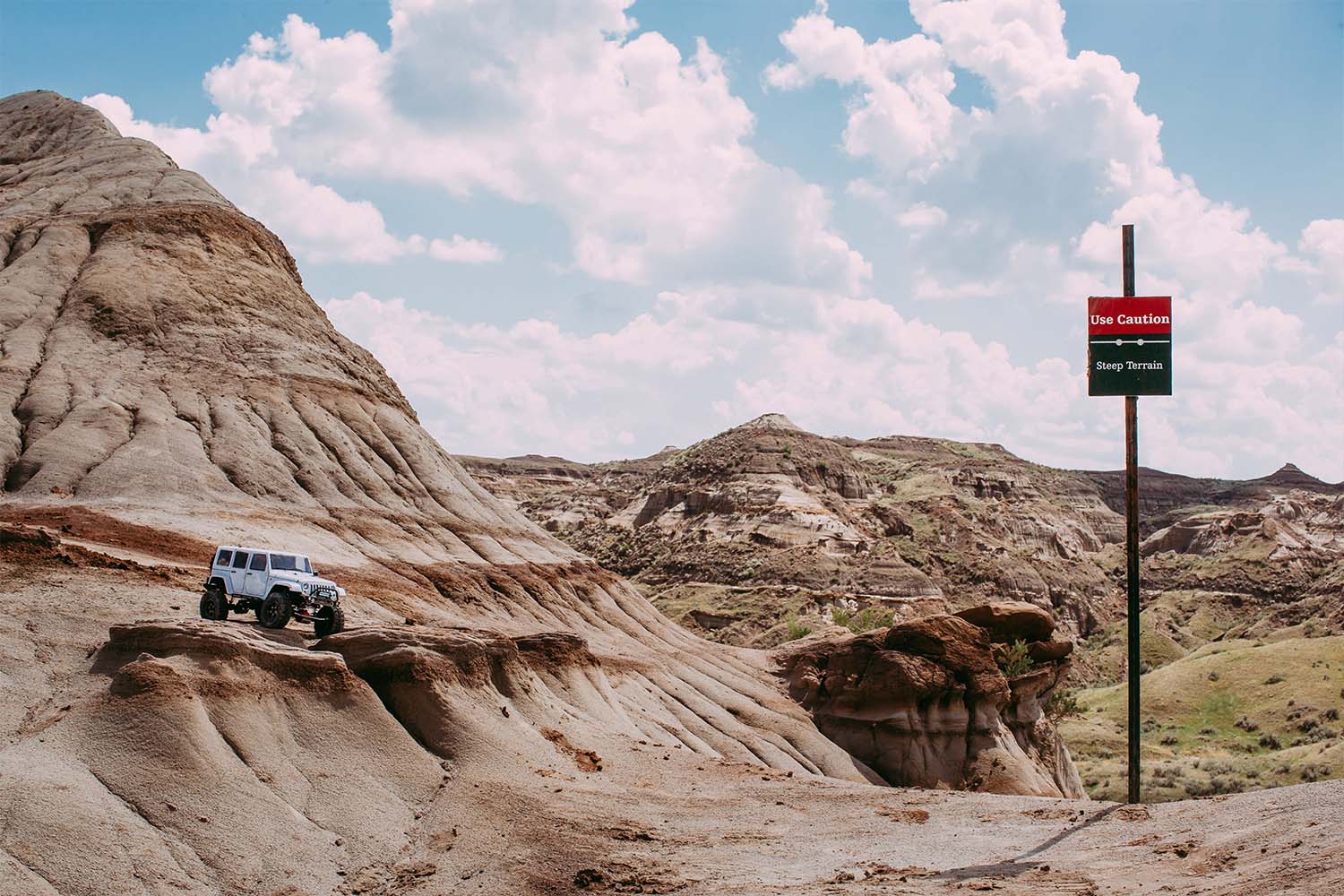
Alberta, Canada
The Canadian province of Alberta has a lot going for it when it comes to prehistoric and paleontology-focused attractions and history. In fact, Alberta is home to the largest and most diverse collection of dinosaur fossils in the world. The Dinosaur Provincial Park, for example, is located just two hours outside of the Calgary city center and boasts more than 35 species of dinosaur fossils, which have all been discovered right on site. There’s also the world-renowned Royal Tyrrell Museum in Drumheller, which is the only museum in the country dedicated exclusively to the science of paleontology and is home to the world’s largest displays of dinosaurs. While in Drumheller, it’s also worth swinging by the Fossil World Dinosaur Discovery Centre, which — although a little on the whimsical side — houses the largest animatronic dinosaur on earth. There’s also the Devil’s Coulee Dinosaur Museum in Warner where a young local girl discovered authentic dinosaur eggshells along the Milk River Ridge in 1987.
Brussels, Belgium
There are a lot of very good reasons to plan a trip to the biggest city in Belgium. From the frites and beer to the mitraillettes and chocolate, the comic book capital is brimming with indulgent treats and a whimsical and diverse history that’ll keep you busy for weeks, if you let it. That said, it’s the Royal Belgian Institute of Natural Sciences that stands out when it comes to piquing your inner paleontologist. The comprehensive museum of natural history holds more than 30 fully-intact fossilized Iguanodon skeletons that were discovered in Bernissart (just an hour or so outside of Brussels) back in 1878. The reassembled skeletons reach heights of more than 30 feet, and the herd of dinosaurs dotted throughout the museum is both intimidating and beautiful. You’ll also want to go into the smaller rooms and exhibits, which do a fantastic job of outlining exactly how the herd of skeletons was discovered and the painstaking preservation efforts that paleontologists had to work with more than a century ago when the dinosaurs were first found. If you have the time, there’s the Musée de l’Iguanodon right in the tiny commune of Bernissart. The compact museum has an impressive collection of fossils and even more information on the discoveries, but you’ll want to note that the exhibitions are only described in French or Flemish, so English speakers might miss out on some of the key explanations and information.
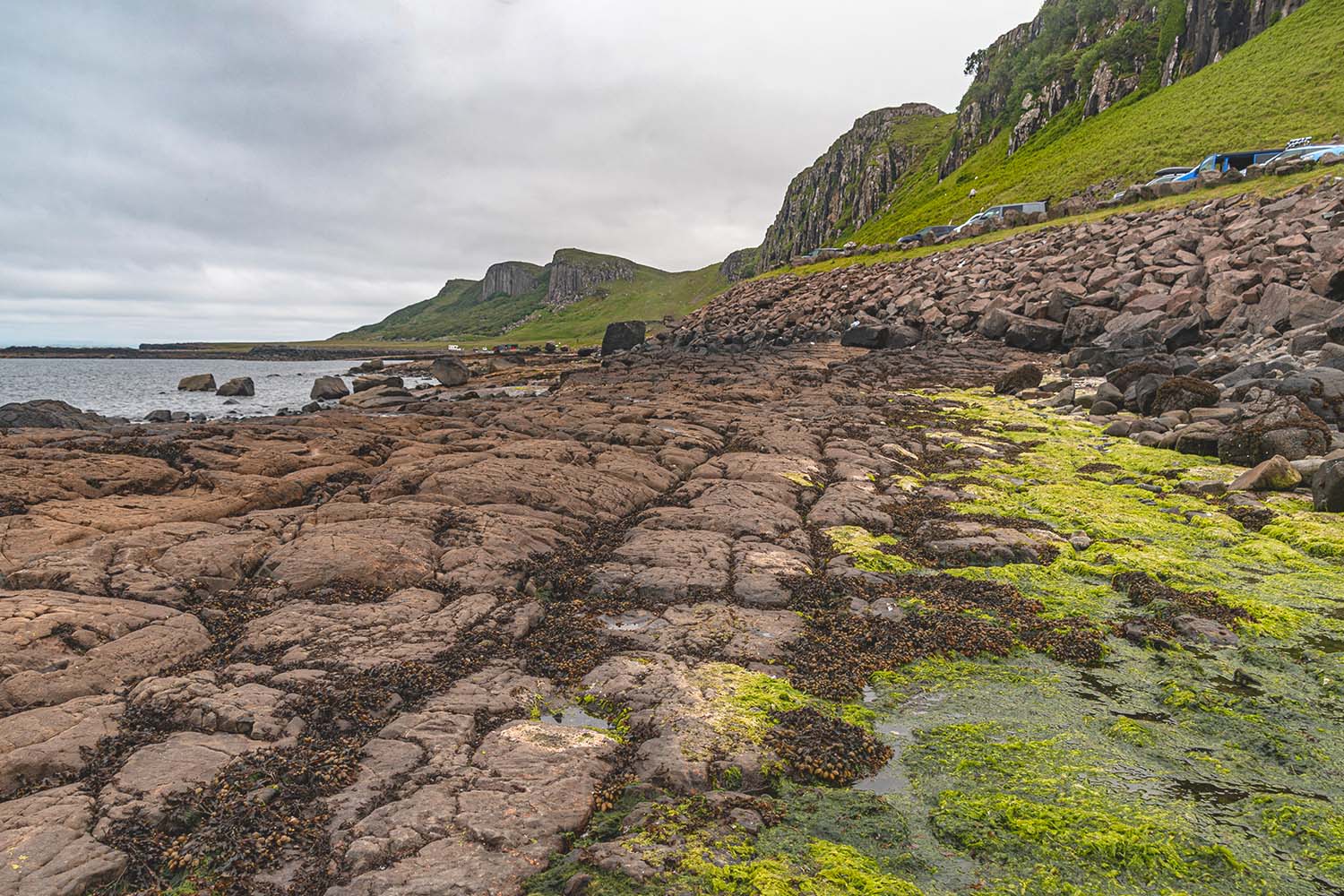
Isle of Skye, Scotland
The Isle of Skye in Scotland draws thousands of nature lovers and history buffs each year for its unique landscape shaped by Ice Age glaciers. Now nicknamed Dinosaur Isle, it boasts 165-million-year-old dinosaur tracks and footprints from the Jurassic era that have hardened and turned to rock. The best part? These footprints aren’t confined to museums or exhibitions but can be spotted in the wild in places like the An Corran beach in Staffin, where visitors are invited to embark on self-guided walking tours, following in the steps of the Jurassic era dinosaurs (quite literally). It’ll be easiest for most travelers unfamiliar with the area to spot Ornithopod tracks, but locals and serious paleontology fiends have also spotted footprints from the Megalosaurus, Cetiosaurus and even Stegosaurus. While in Staffin, it’s also worth paying a visit to the Staffin Ecomuseum. The compact but comprehensive museum is nearing its 50th year in business and has amassed an impressive collection of local dinosaur fossils and bones, as well as friendly staff with encyclopedia-level knowledge of all things Dinosaur Isle.
The Perfect 7-Day Scotland Itinerary
From haggis toasties to world-famous golf courses, here’s where to go and what to do in Great Britain’s greenest pastures.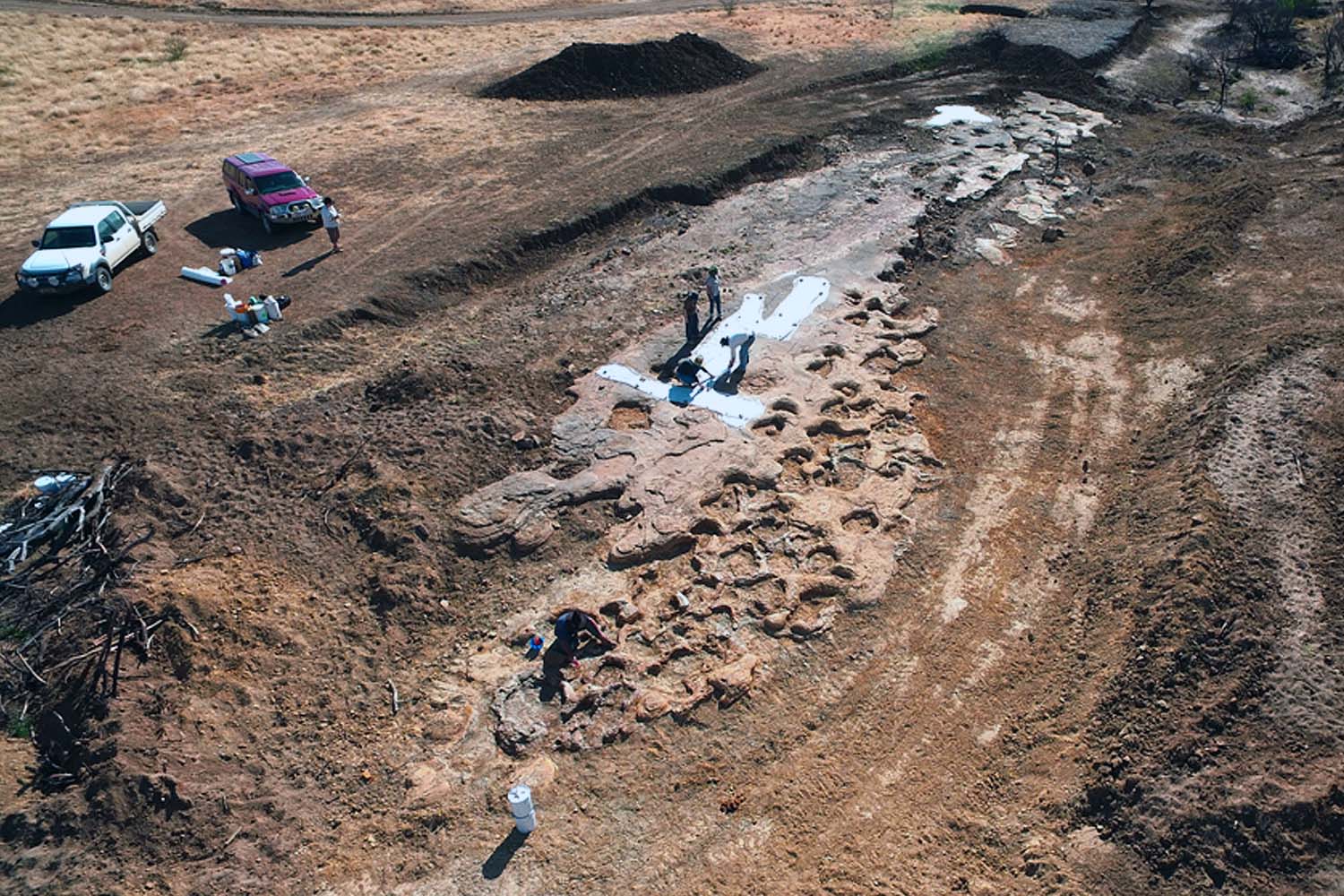
Queensland, Australia
Traveling to Australia for the first time comes with a ton of new and unique experiences for animal-loving tourists — between the abundance of kangaroos, wallabies, quokkas and koalas, nature-watching down under takes on a whole new meaning. That also applies to prehistoric animals, especially if you’re visiting the state of Queensland. The Australian Age of Dinosaurs Museum in Winton is a not-for-profit museum that features the world’s largest collection of Australian-specific dinosaur fossils and can easily take up an entire day if you’re not careful. If you’ve always considered a second act as a paleontologist, The Australian Age of Dinosaurs team also offers a unique weeklong Dig-A-Dino experience in the Australian outback each spring, which takes guests for an actual research expedition alongside expert paleontologists to dig for dinosaur bones and fossils. Diggers will also gain experience in preparing specimens for scientific study, and you can display and plaster any specimens you find on your own. The week-long experience includes comfortable accommodations in the outback (including flushing toilets and even a washing machine, don’t worry), as well as catered meals and post-dig cocktails.
Paris, France
It’s hard to imagine dinosaurs strolling along the Champs-Élysées sipping espresso and nibbling croissants, but the City of Light happens to have an impressive collection of prehistoric fossils and skeletons. The Galerie de Paléontologie et d’Anatomie comparée in the Natural History Museum Paris — which has been dubbed the Paris Dinosaur Museum by the French press — isn’t as sprawling or jumbo-sized as other national history museums you might have visited. But the open concept atrium is architecturally stunning and packed to the gills with dinosaur fossils, bones and thousands of other prehistoric and modern-day oddities to explore (including real human skulls and fetuses — yikes). The spectacular dinosaur collection includes the Diplodocus, Iguanodon, Allosaurus, Carnotaurus, Tarbosaurus, Unenlagia, Dromaeosaurus, the Bambiraptor and a fully intact Triceratops skull on permanent display. Note that this museum can get extremely busy and the wait time to enter can be more than an hour, so plan accordingly to ensure you don’t have to rush through before it closes.
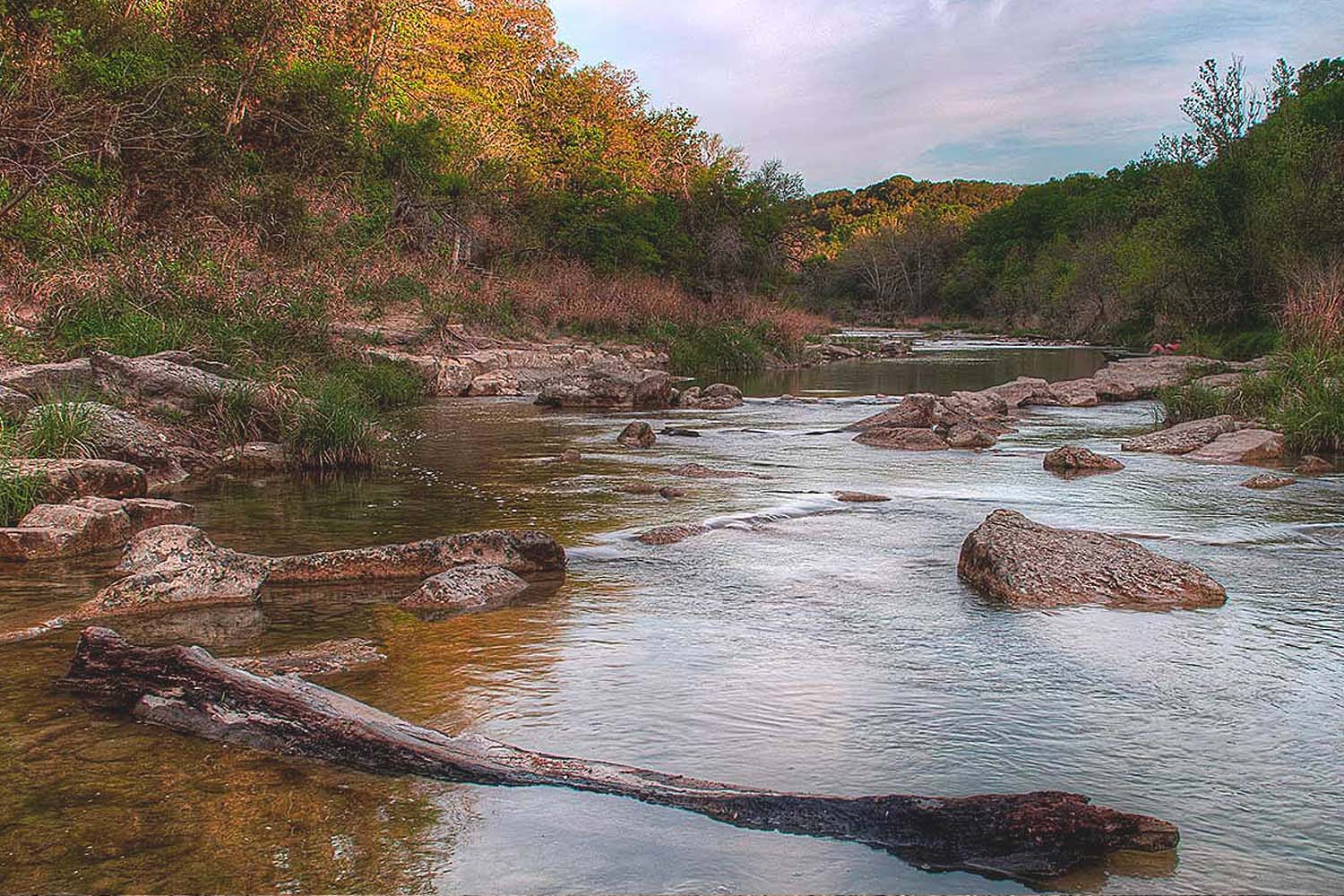
Glen Rose, Texas
You don’t have to hop aboard an international flight to experience a prehistoric vacation closer to home. Instead, plan a road trip to Glen Rose, Texas. The small town is less than an hour outside of Fort Worth and offers some of the best dinosaur fossil spotting in North America. Like the Isle of Skye in Scotland, Dinosaur Valley State Park boasts dozens of fossilized dinosaur footprints that aren’t confined to a museum or exhibition. Guests are invited to spend the day exploring the 113-million-year-old dinosaur footprints along the riverbed and across the 1,500-acre U.S. National Natural Landmark. The $7 admission fee also includes getting up close and personal with two cheeky but generally anatomically correct life-sized dinosaur models: an Apatosaurus and a Tyrannosaurus rex.
This article was featured in the InsideHook newsletter. Sign up now.
